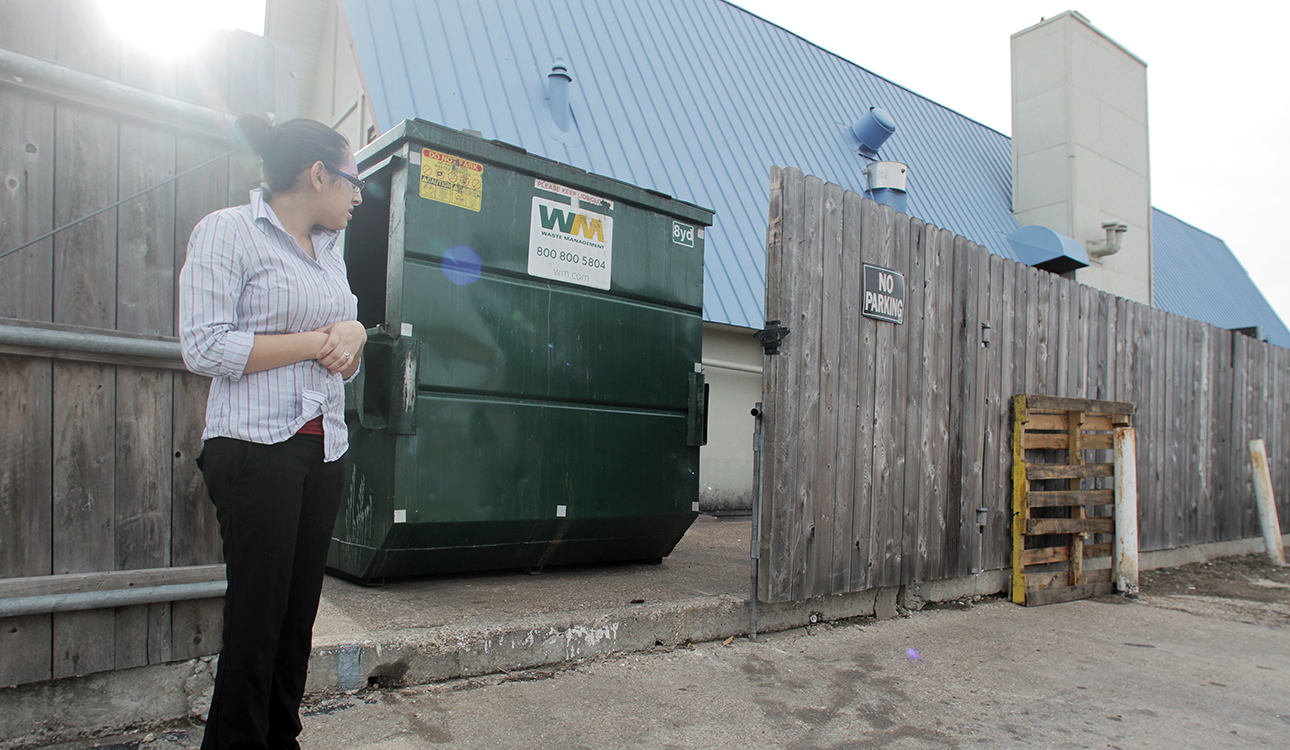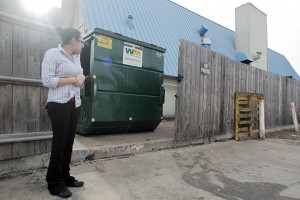

Travis Taylor | Lariat Photo Editor
By Jordan Corona
Staff Writer
Students having trouble finding a parking space is nothing new to campus life. Some students solve that problem by leaving their cars on the concrete strip behind the IHOP on Fourth Street. This causes problems and is against Baylor’s parking rules.
Matt Penney, director of parking and transportation services, said he’s concerned about driver safety. The concrete strip belongs to the university and is not wide enough, or organized for people to get in and out safely, he said.
“All we did was add a red stripe down the strip to indicate a no-parking zone,” Penney said. Baylor Parking Service enforces the red-stripe policy with a $25 ticket issued to violators. Baylor only enforces the no-parking zone behind the restaurant.
But there are two areas surrounding the pancake eatery people use to park their cars.
In front, customers have to compete with non-patron parkers.
One early morning, Mariela Gonzales, an IHOP manager at the location on Fourth Street, began her 4 a.m. shift to find an entire row of parking spaces occupied by cars tagged with Baylor student parking passes. She went inside and in the whole diner there were only two customers.
Too many cars in the front IHOP parking lot prevent potential customers from stopping in for breakfast. And that puts a strain on the IHOP wait staff.
“It looks like the restaurant is full when it really isn’t,” Gonzales said. “My servers go out there and tell the students, ‘Hey, you can’t park there,’ but they just keep walking.”
A crinkled up note, written with pen and printer paper, lay in a puddle behind the IHOP dumpster.
“Why would you park in front of our dumpsters?” the handwriting read. “This happened yesterday and our trash could not be picked up!” Signed, IHOP.
A trash truck makes daily visits to the rear of the restaurant where the dumpsters are located. It’s also popular for drivers who need a place to keep their cars.
When those dumpsters are blocked off by unattended vehicles, it’s a sanitary issue for the restaurant.
“We’ve only towed three or four cars this year,” said “We don’t want to have to do that. In fact, general management asks us not to, but when the trash piles up, it’s a health issue.” The restaurant is charged $400-500 dollars every time they need to call for a tow.
Parking behind the restaurant can also be a safety issue, Gonzales said. “If something happens and we have an emergency, emergency vehicles can’t get through with all the cars in the way,” she said.





